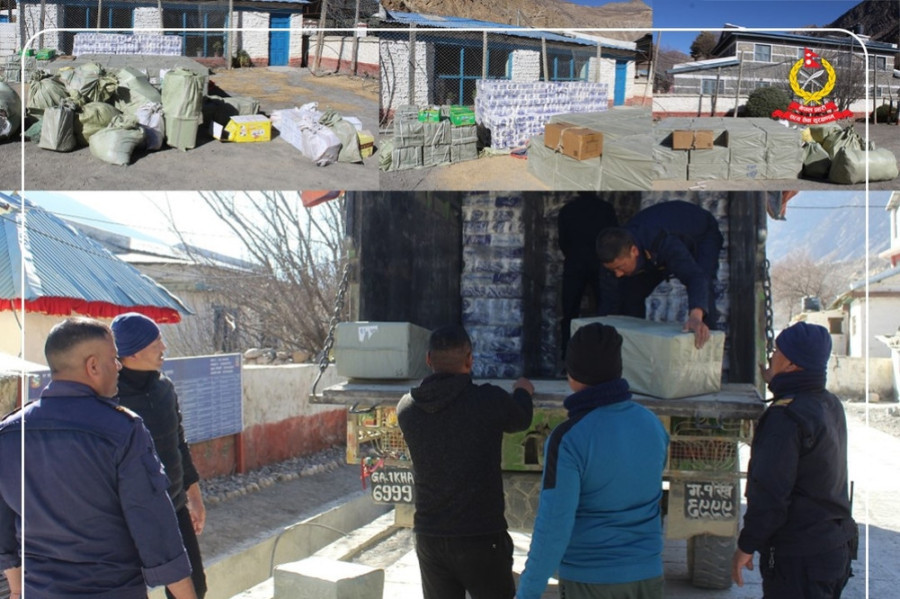Editorial
Save the image
Nepal, with its struggling economy, cannot afford to be seen as haven for smugglers of all kinds.
Nepal has over the years earned notoriety as a hub and a transit point for smuggling illegal goods. In particular, in July 2023, the country gained infamy as a hotspot for smuggling due to the involvement of high-level political leaders in bringing in 60 kg of gold via its major air gateway, Tribhuvan International Airport. The incident not only exposed Nepal’s corrupt political and bureaucratic leaderships but also emboldened potential smugglers and criminals to use Nepali territories to ply their trade.
Recently, the Department of Revenue Investigation (DRI) and the Nepal Police discovered a huge quantity of illegal electronic cigarettes, also known as vapes, that were smuggled from China. These products were sneaked in through the Rasuwagadhi and Tatopani checkpoints, with some reportedly entering via the Korala checkpoint. Over the past two weeks alone, 120,000 vapes worth more than Rs250 million have been seized, including 86,000 found in a single warehouse in Imadol, Lalitpur.
Such smuggling cases, however, are not confined to the northern border regions; they are also rampant on the southern side, as even in June last year, five people were arrested for illegally transporting 58 cartons of vapes from China to India, via Nepal. Vapes, which come in different flavours, are quite popular in India. Indian importers can bring in vapes by paying custom duty, but smugglers try to evade the duties for unscrupulous gains.
This large-scale vape smuggling incident has again highlighted the gravity of smuggling in Nepal, as well as a lack of high-level commitment to strengthen mechanisms to control such illegal acts. A report in the Post from October last year raises concerns surrounding the security lapses that have resulted in more smuggling at the Nepal-India border point in Krishnanagar, Kapilvastu district. As a result of these lapses, illegal drugs like hashish and firearms were being imported. Similarly, smuggling has increased due to the lack of sub-customs offices in Bara and Kanchanpur districts. Such security loopholes have allowed illegal goods to pass through Nepal’s border.
Again, political inaction and involvement have hindered security forces’ efforts in controlling smuggling. These security agencies are often controlled or manipulated by political parties and leaders, as seen in Krishnanagar. Security personnel also point to sophisticated smuggling techniques, such as creating false bottoms in the roof areas of buses to hide vapes. Existing security mechanisms cannot identify them. Worse, smuggling often occurs in partnerships with senior political figures, making it much more difficult to tackle the problem.
The rising tide of smuggling in Nepal warrants urgent reform in border and airport customs. This includes not only better training and resources for security personnel at key checkpoints but also efforts to break the smuggler-politician nexus. Enhancing border surveillance, increasing the use of modern technology and ensuring strict punishment could help deter the smuggling of illegal goods. For now, the case of vape smuggling should be taken seriously, and further investigation carried out, keeping in mind that these e-cigarettes have, in the past, been used to smuggle gold. The country that is only just beginning to emerge from the Covid-induced slowdown in its economy, and tourism in particular, cannot afford to be seen as a smuggling haven.




 8.88°C Kathmandu
8.88°C Kathmandu














